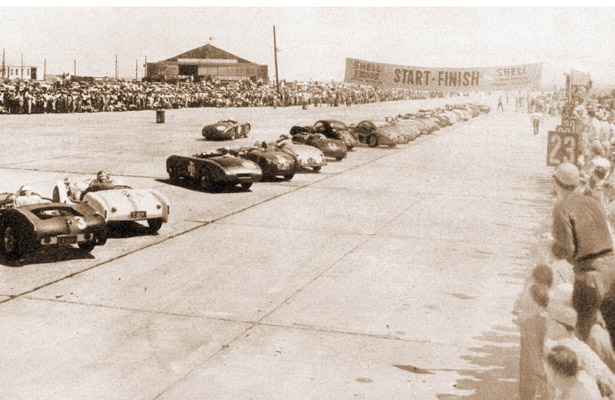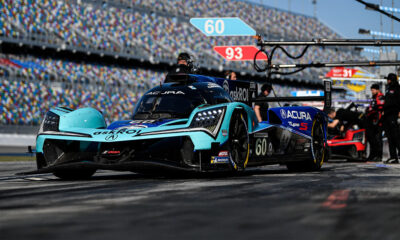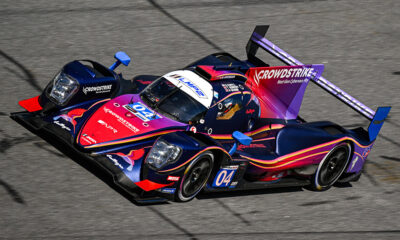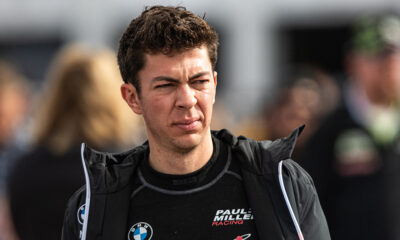
Photo: Sebring Archives
With the first 12 Hours of Sebring race under his belt, Alec Ulmann set his sights on the 1953 edition. But in only the second year of its existence, Sebring’s 12-hour endurance race was about to take a leap in prestige.
The FIA had decided to start a new World Championship for sports car manufacturers beginning in 1953. Ulmann pitched for Sebring to be the North American round of the championship.
Not only did he succeed, but Sebring was to be the opening round of the new championship.
In addition, Ulmann was far ahead of his time in motor racing marketing. Long before other major circuits in North America (including Indianapolis) understood about sponsorships, signage and hospitality, Ulmann was already busy marketing the event to major corporations.
Shell Oil would be the primary sponsor in 1953 (and beginning the following year, Amoco would be one of its biggest and longest running sponsors).
He also had numerous advertising signs and banners installed around the circuit. He invited the world’s top motor racing journalists, even arranging their flights and accommodations.
Despite the remote location of Sebring, Ulmann had an uncanny ability to convince virtually every important executive in the automotive industry to attend Sebring.
The Sebring circuit, however, was still an airport and industrial complex 360 days a year, so Ulmann struggled to make the facility look like a proper circuit.
Oil drums marked the circuit at some turns, and hay bales in others. When John Wyer and his Aston Martin team arrived for the race, he could hardly believe the vast former military base could somehow host a major endurance race.
The race attracted a strong entry list, with over 50 cars on the starting grid.
Headlining the entries were the Aston Martin DB3 team, Jim Kimberly’s Ferrari, several Allards and Jaguars, and Briggs Cunningham’s Chrysler powered C4R. The smaller displacement classes included several OSCA, MG, DB and Siata entries.
The grueling 12-hour race became a furious duel between the Aston Martin and Cunningham teams.
When the Peter Collins/Geoffrey Duke Aston retired from damage it suffered hitting an oil drum, the lead went to the Cunningham driven by John Fitch / Phil Walters (aka Ted Tappet in oval racing). They were chased by the Reg Parnell / George Abecassis Aston for the remainder of the race.
After 12 hours, the Cunningham finished with a one-lap margin, giving the win to the small team from West Palm Beach, Florida. It would be the last win by an American car for 12 years.
Third place went to a Jaguar C driven by Sherwood Johnston and Bob Wilder. Briggs Cunningham, driving an OSCA MT4 while his namesake car won overall, earned a class victory and finished 5th overall.
It was the same OSCA that would record a stunning overall victory the following year at Sebring with Stirling Moss and Bill Loyd at the wheel.
The first ever FIA World Championship race for sports cars turned out to be a big success. Sebring would remain in the championship for 19 years.
In a historical irony, Sebring would also host the first ever race in the revival of the FIA Sports Car World Endurance Championship (WEC) held in 2012.
In four short years Sebring had grown from a six-hour club race into one of the world’s most important endurance classics.
Ulmann would continue to build the Sebring event throughout the 1950s, and even hosted the first USGP Formula One race in the United States in 1959.
Although he departed Sebring in 1972, Sebring has continued on as America’s greatest endurance racing tradition.
The 63rd edition of the Mobil 1 Twelve Hours of Sebring Fueled by Fresh From Florida takes place this weekend.

























